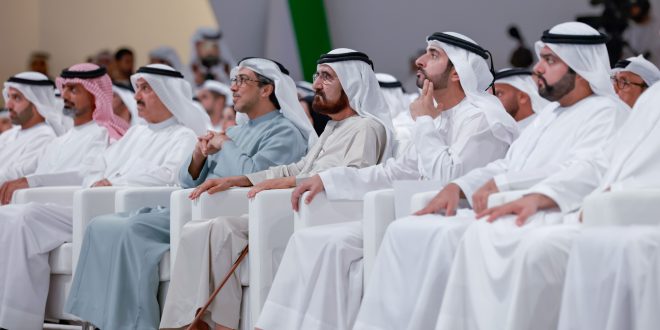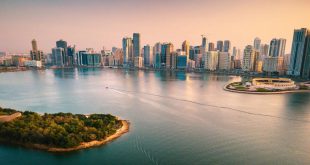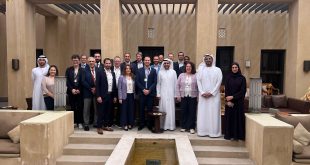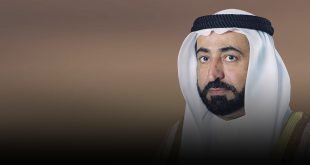His Highness Sheikh Mohammed bin Rashid Al Maktoum, Vice President, Prime Minister and Ruler of Dubai, in the presence of His Highness Sheikh Mansour bin Zayed Al Nahyan, Vice President, Deputy Prime Minister and Chairman of the Presidential Court, attended the unveiling of the National Investment Strategy 2031 at the UAE Government Annual Meetings 2024 in Abu Dhabi.
Convening on 5th and 6th November, the Annual Meetings bring together over 500 officials from the UAE government, local entities, private sector, and community organisations.
His Highness Sheikh Mohammed remarked, “Clear goals lead to great achievements. The UAE’s remarkable surge of 35 percent in foreign direct investment inflows to AED112.6 billion in 2023, despite a global decline, affirms the success of our strategies and the high level of international confidence in our nation.”
His Highness Sheikh Mohammed noted, “The National Investment Strategy 2031 builds on achievements driven by carefully crafted plans, programmes, and initiatives aimed at positioning the UAE as a global strategic investment hub.
His Highness Sheikh Mohammed emphasised, “The UAE possesses strong fundamentals to attract investments, companies, businesses, and talent. Our objective is to double cumulative foreign direct investment inflows to AED1.3 billion by 2031.”
The launch of the National Investment Strategy 2031 was attended by H.H. Sheikh Hamdan bin Mohammed bin Rashid Al Maktoum; Crown Prince of Dubai, Deputy Prime Minister and Minister of Defence; H.H. Sheikh Maktoum bin Mohammed bin Rashid Al Maktoum, First Deputy Ruler of Dubai, Deputy Prime Minister and Minister of Finance; H.H. Sheikh Ahmed bin Mohammed bin Rashid Al Maktoum, Second Deputy Ruler of Dubai and Chairman of the Dubai Media Council; H.H. Sheikh Sultan bin Ahmed bin Sultan Al Qasimi, Deputy Ruler of Sharjah; H.H. Sheikh Ammar bin Humaid Al Nuaimi, Crown Prince of Ajman; H.H. Sheikh Rashid bin Saud bin Rashid Al Mua’lla, Crown Prince of Umm Al Quwain; H.H. Sheikh Mohammed bin Hamad bin Mohammed Al Sharqi, Crown Prince of Fujairah; H.H. Sheikh Mohammed bin Saud bin Saqr Al Qasimi, Crown Prince of Ras Al Khaimah and H.H. Sheikha Latifa bint Mohammed bin Rashid Al Maktoum, Chairperson of the Dubai Culture and Arts Authority, alongside ministers and officials.
During the session, His Highness Sheikh Mohammed bin Rashid attended a presentation by Mohamed bin Hassan Al Suwaidi, Minister of Investment, on the goals, programmes, and key initiatives of the National Investment Strategy 2031.
Al Suwaidi highlighted the UAE’s impressive FDI growth since 2015, with its share of global flows increasing 5.5 times and inflows rising 17.3 percent despite a global decline of 5.3 percent. The strategy, aligned with the “We the UAE 2031” vision, aims to establish the UAE as a global investment hub by leading in emerging sectors, attracting top talent, and fostering Emirati leadership, innovation, and entrepreneurship.
The UAE’s new foreign direct investment (FDI) strategy aims to significantly boost FDI by 2031. Targeting key sectors like advanced manufacturing and renewable energy, the strategy seeks to double cumulative FDI to AED1.3 trillion (30 percent of national investment volume) and triple the cumulative FDI balance to AED2.2 trillion by 2031. This will be achieved through five strategic directions: attracting new investments in priority sectors, expanding FDI in existing projects, strengthening international partnerships, enhancing investor relations, and boosting the UAE’s overall competitiveness.
During the session, Al Suwaidi outlined the key targets and programmes under the National Investment Strategy 2031 and highlighted the UAE’s recent accomplishments. In 2023, the UAE ranked second globally after the United States in the number of new foreign direct investment (FDI) projects, with 1,323 new projects—a 33 percent increase from 2022.
In 2023, the UAE saw FDI inflows surge to approximately AED112.6 billion, a striking 35 percent increase from AED83.5 billion in 2022. The country advanced five positions to rank 11th globally in FDI attraction, according to the UNCTAD report.
In terms of cumulative FDI balance, Al Suwaidi noted that the UAE has significantly outpaced global growth rates over the past decade. From 2013 to 2023, the UAE’s FDI balance increased by 150 percent, far exceeding the global average growth rate of 97 percent.
The UAE’s attractiveness for foreign investment is driven by its economic competitiveness, technological leadership, talent acquisition, global trade hub status (supported by numerous treaties and agreements), advanced financial centres, world-class infrastructure, and high quality of life.
The National Investment Strategy 2031 builds on these strengths, leveraging each emirate’s unique advantages to foster private sector growth and innovation. By integrating global trends and prioritising research and development, the strategy aims to create a vibrant, investor-driven, private-sector-led economy.
Al Suwaidi addressed global investment challenges, including geopolitical tensions, shifting investment hubs, and increased competition for attracting investments. He also highlighted successful global investment attraction strategies. While acknowledging the UAE’s past success in attracting FDI, Al Suwaidi emphasised the need to further enhance the nation’s attractiveness and competitiveness to unlock its full potential. The focus will be on leveraging FDI to meet national investment needs, encourage repeat investments, and retain key investors.
The session launched the InvestUAE brand to act as a unified platform for promoting the UAE as a global investment hub. While the Ministry of Investment handles policy and regulation, InvestUAE will lead promotional efforts, including awareness campaigns, summits, international events, and digital marketing targeting global investors. This aims to strengthen the UAE’s international presence, forge partnerships, and drive sustainable economic growth and diversification.






